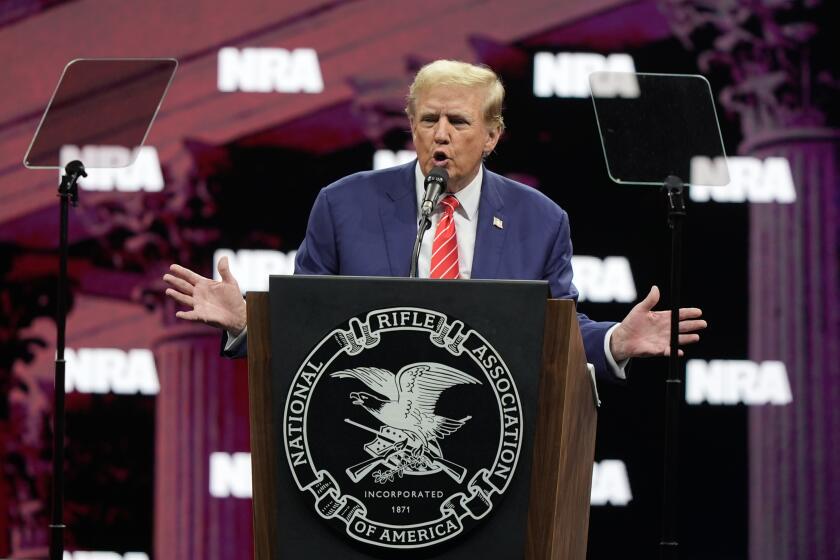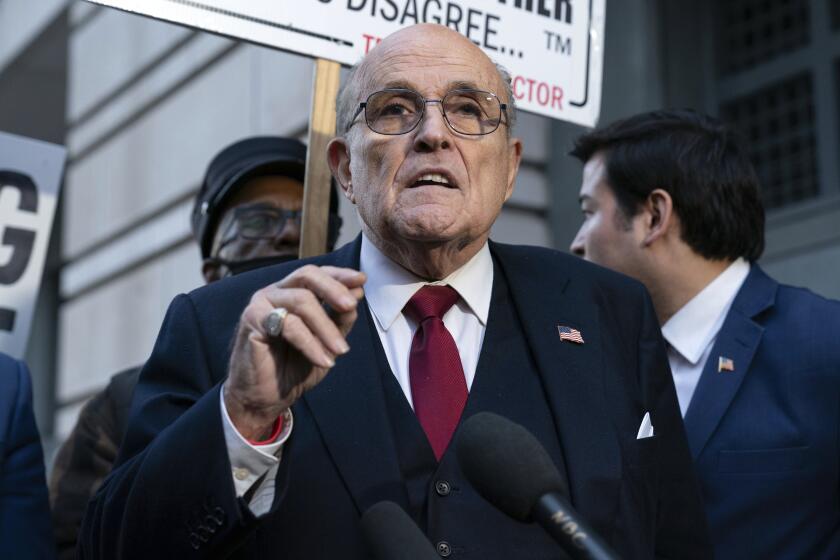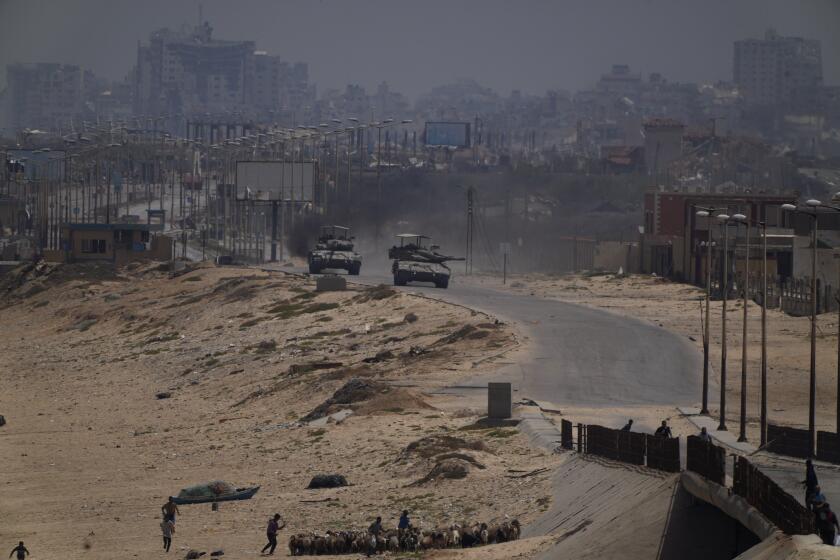South Korea Opens Race for President : Chun Decries Threats to a Fair Election as 6 Sign Up to Run
President Chun Doo Hwan, proclaiming the opening of an official presidential campaign, Monday decried “violence by radical leftist forces” as a threat to a fair election and vowed to crack down on them.
Chun also condemned “certain politicians” for fanning regional antipathy between residents of the southwest Cholla area and the southeast Kyongsang area. Both phenomena, he said, are “hampering the atmosphere of a free and fair election.”
The outgoing president issued the declaration as six candidates registered to compete in the Dec. 16 election.
All three of the front-runners decried the violence that marred three rallies over the weekend in which 88 people were detained. Police sought arrest warrants against 24 of the detainees.
Police on Alert
To curb election violence and irregularities, the national police headquarters announced that it had put its 120,000-member force on alert through Dec. 18, when the Central Election Management Commission is scheduled to announce the official results of the voting. A special alert was ordered for the last seven days.
Kim Young Sam, the opposition Reunification Democratic Party’s candidate, came under fire Monday for remarks he made in rallies in two cities in his native South Kyongsang province after he was forced to abort a rally Saturday in Kwangju, capital of North Cholla province. In Kwangju, he was driven from a speaker’s stand by shouts, eggs, rocks and flying placards. Kim blamed the attack on government agents.
Later, Kim reportedly urged voters at a rally in Masan to greet presidential candidate Kim Dae Jung, a Cholla native, “in a clean manner when he comes here.”
“Let’s show that we, the citizens of South Kyongsang province, are great people,” Kim was quoted as saying.
Still later, at another South Kyongsang rally in Changwon, Kim was quoted as urging the people not to obstruct any future rally by his Cholla rival, so as to “make the people of Kwangju ashamed of themselves.”
TV stations and newspapers reported receiving calls of protest against Kim’s use of his Kyongsang background in the Masan speech and his appeal to shame the people of Kwangju in his Changwon speech.
Kim Dae Jung, who bolted the main opposition party to set up his own Party for Peace and Democracy to seek the presidency, was forced to deliver a speech Sunday in Taegu behind shields held by supporters when people in the crowd started throwing rocks and sand at him. Taegu, capital of North Kyongsang province, is the home of Roh Tae Woo, the ruling Democratic Justice Party’s candidate.
Kim Dae Jung blamed his trouble in Taegu on government agents.
Government ‘Wrongly’ Blamed
Lee Min Sup, spokesman of the ruling Democratic Justice Party, retorted that both opposition Kims were “habitually and groundlessly blaming the government and the ruling party for violent protests to disguise conflicts” between themselves.
In a press conference Monday, Roh--who himself was pelted by an egg in Kwangju and narrowly missed being hit by a firebomb in Taegu in earlier rallies--urged his opponents to “refrain from resorting to expressions of localist sentiments detrimental to harmony and democratic progress.”
He also called upon his major rivals, including Kim Jong Pil, a strongman of the 1961-79 era of the late President Park Chung Hee, to join him in working out measures to guarantee a free and fair election.
Roh pledged to “sweep away all authoritarian colors by reducing the functions of the president’s office, enhancing the power of the Cabinet, readjusting roles of intelligence agencies and improving autonomy of all organizations.”
‘Civilian-Led Democracy’
The ex-general, who supported Chun’s 1980 coup, said he would serve as a bridge leading to “civilian-led democracy” by guaranteeing the political neutrality of the 625,000-member armed forces.
Roh predicted that revelations last week that he, as a major general, had led an infantry division from the forward area into Seoul to depose the army’s chief of staff in December, 1979, would not hurt his campaign. The military move gave Chun, also a major general at the time, control of the army, which he later deployed in his May, 1980, coup.
“I showed what I am through my June 29 democratization program,” Roh said, referring to sweeping reforms the ruling party leader promised in the wake of 18 days of nationwide street protests against the Chun government.
Police, nonetheless, raided a printing shop in Seoul to seize the manuscript of memoirs written by the deposed army chief of staff, ex-Gen. Chung Seung Hwa, who a week ago stunned Roh by joining Kim Young Sam’s party as an adviser. Korean newspapers quoted a police spokesman as saying the manuscript would be returned if it were found to contain “no groundless rumors.”
In addition to the three Kims, all of whom were purged in Chun’s 1980 coup, and Roh, two minor candidates of newly organized political parties registered as presidential candidates Monday.
More to Read
Start your day right
Sign up for Essential California for news, features and recommendations from the L.A. Times and beyond in your inbox six days a week.
You may occasionally receive promotional content from the Los Angeles Times.






